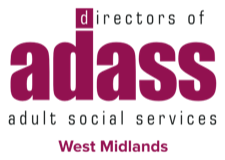Planning ahead in a changing world
Risk management is a crucial aspect of effective leadership in adult social care, particularly given the major challenges facing the sector. These challenges include financial sustainability risks, market fragility, workforce challenges, and cultural and behavioural change, as well as the risks to individuals of the impact of poor-quality services or gaps in provision.
It is essential you take a proactive approach and identify current and potential risks, and develop strategies to mitigate them. The key steps include:
Identifying risks: start by conducting a risk assessment specific to adult social care. This can include financial risks, such as unmanaged overspend, increasing demand, market fragility or failure, workforce shortages, integration challenges with the NHS, or risks to the people we support resulting from poor quality services or gaps.
Risk ownership: each risk and identified mitigation action will need to be managed by a sufficiently senior owner, to ensure accountability and to monitor progress and impact. As a DASS, you will be risk owner for cross-cutting, corporate level risks.
Assessing the risks and developing risk management strategies: this could include developing contingency plans for financial risks, investing in workforce development to address skill gaps, implementing strategies to promote cultural and behavioural change, increasing resources, improving communication, or building partnerships with other organisations. You should consider the likelihood and impact of each risk, and if your council uses a corporate scoring system as part of the risk policy, you could rate them based on their potential impact. Your council should have a risk management policy and set of tools (e.g. a risk matrix) to aid with the process of identification, rating, recording and mitigating, but if it does not, you should establish this through your corporate leadership team role.
Monitoring and reviewing as frequently as you need: this identifies new risks as they emerge so you can adjust your strategies accordingly. Update the risk register as new risks are identified or existing risks change.
The monitoring and reviewing process should involve democratic oversight for more significant risks and the threshold for this will most likely be derived from your local council risk policies and agreed processes, plus your own judgment. This may include, for example, the interplay between risk appetite and the impact of budget levels on quality and service delivery. You must be able to clearly articulate relevant risks associated with budget limitations into the council’s budget strategy and planning discussions.
Reporting on risks: there should be regular reports to the adult social care senior management team and for risks that require more corporate or public scrutiny, onward reporting to the council’s corporate (or executive) leadership team and councillors.
By incorporating risks in adult social care into the corporate risk register, you can ensure they are being effectively managed and mitigated alongside other organisational risks. This will provide a more comprehensive view of the risks facing the organisation and enable better decision making and resource allocation.
Collaborating: working with other leaders, professionals and stakeholders to identify and mitigate risks is essential, while also ensuring there is clear overall ownership for each risk and each mitigating action. Adult social care has a contribution to make in the mitigation of risks for other partners, for example, timely social care support at the point of hospital discharge reduces the risk of increased pressures for hospital providers.
There is a range of tools and processes to manage and mitigate risks in adult social care, such as:
Performance monitoring: regular monitoring of performance indicators identifies areas of underperformance or emerging risks. If you undertake a regular review, you can take proactive action quickly before issues become more serious.
Business continuity planning: this helps to prepare for and respond to unexpected events and emergency situations. The directorate’s business continuity plans should identify risks and the steps that need to be taken to maintain critical services in the event of an emergency. This will ensure a clear view of how core resilience can be maintained.
Engaging stakeholders: working with people who draw on support, families, providers, commissioners, cross-council support and partners such as the NHS ensures there is adequate visibility and understanding of current and potential risks across relevant stakeholders and the actions being taken to mitigate them. For corporate and/or high risks, relevant councillors will need to be briefed and you must seek confirmation that you will receive formal support for the articulated risk levels and mitigation plans. This could be for example, through scrutiny, cabinet portfolio holder decision sessions or cabinet. As DASS, you should not be aware of serious or significant corporate risks that you have not appropriately briefed relevant councillors upon.
Financial management: effective financial management contains and mitigates financial risks. You will have well-embedded mechanisms for regular (at least monthly) financial monitoring, which includes year-end forecasting, as well as less frequent (e.g. annual) scenario planning to identify, scope, plan for and implement effective budgetary strategies to deliver identified service plans plus how to address new, unavoidable burdens as they emerge.
Contract management: this can help to mitigate any risks of commissioning and procurement (see chapter Commissioning: meeting needs in the best way)
Governance and assurance: you will have a directorate leadership team meeting or equivalent at which you have all the information you need to assure you that adult social care functions are being delivered as they should be.
In support, you can have a ‘governance and quality assurance framework’, which sets out the standard reporting cycle for key information, spanning everything from case audit outcome reports and ASCOF (adult social care outcomes framework) progress reporting to workforce information. This framework is important because key oversight reports can otherwise be forgotten, which risks you not knowing key information. The ‘why, how and when’ of onward reporting to the council’s corporate management team and public scrutiny should also be clear.
